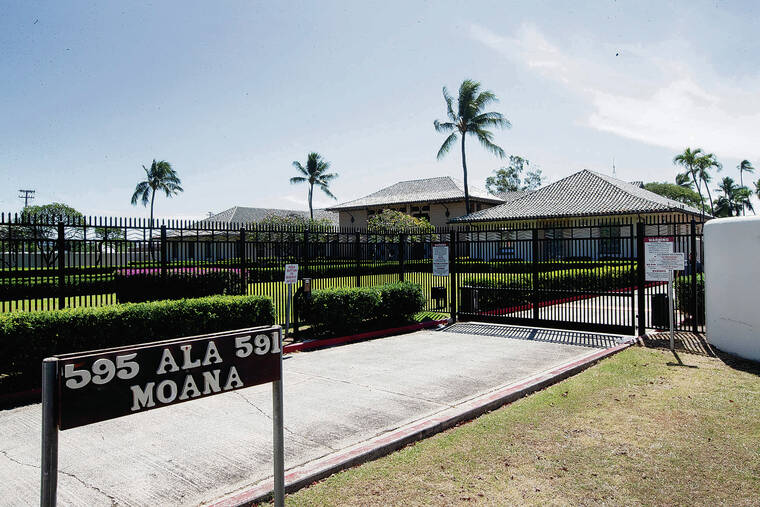LIHU‘E — Two months into the state legislative session, the House and Senate remain at odds over how to increase the minimum wage.
This week saw clashes in the ongoing push and pull between the two chambers on the specifics of the $18-an-hour-wage legislation.
“There’s a struggle between the House and the Senate,” said Kaua‘i community organizer and minimum-wage-advocate Raymond Catania. “I hope the workers don’t get hurt in the process.”
Each chamber has put forward bills that would raise the minimum wage to $18 an hour. Under Senate Bill 2018, the wage would reach $18 by 2026. House Bill 2510, which also includes tax provisions and an increased tip credit, allows businesses to pay tipped employees sub-minimum wages, and the minimum wage would not reach $18 until 2028.
The House did not schedule the Senate bill for a committee hearing by its Monday deadline, essentially killing it.
That same day, the Senate Labor, Culture, and the Arts Committee (LCA) amended the House bill so that it was nearly identical to the original Senate legislation, changing the date from 2028 to 2026 and removing the Earned Income Tax Credit.
The committee also added language so that, instead of increasing it, the tip credit would be removed entirely by 2026. This marked a tentative win for minimum-wage-advocates like Catania, who have consistently supported a quick wage increase and opposed a tip credit.
“The minimum wage sets the floor for other workers to get more. It keeps the price of labor up. Everybody gets something out of it,” said Catania. “I’m optimistic, but we have to continue to make noise.”
The vast majority of those who testified at Monday’s LCA meeting favored the 2026 date for the increase, with 113 testifying in support of the 2026 date and 11 individuals testifying in support of the 2028 date. Five favored a Hawai‘i Chamber of Commerce proposal for $15 an hour by 2027, and 11 favored no increase at all.
Gov. David Ige voiced support Tuesday for a more-gradual wage increase, like the one seen in the House bill, during an interview with The Garden Island.
“It’s about trying to balance increasing the minimum wage at the same time as trying to support small businesses, who would have the most-difficult time being able to absorb the increase in the minimum wage,” said Ige.
Past wage increases
According to Will Caron, director of communications at the policy advocacy nonprofit Hawai‘i Appleseed Center, the bill now seems poised to head to a conference committee made up of members of both chambers.
“Oftentimes, that’s where bills can get significantly weakened or — like what happened in 2019 — can just fall apart because the two sides can’t reach an agreement on compromise language,” said Caron.
In 2019, another minimum-wage push faced similar back-and-forth between the two chambers before eventually dying in a conference committee. That bill would have raised the wage to $15 an hour by 2024, while allowing an increase to just $13 for employees who are provided health care.
Ige said that he also initiated the $15 minimum-wage bills in 2016 and 2017, which died in the Legislature.
Business concerns
The Hawai‘i Chamber of Commerce has been consistently skeptical of the wage increase, citing a poll of their members at the LCA meeting that showed:
w 58% of businesses said they would need to reduce staff if the minimum wage increased to $18 by 2026;
w 49% of businesses said they would need to reduce staff if the minimum wage increased to $18 by 2030;
w 26% of respondents said they would need to shut down their businesses entirely if the minimum wage increased to $18 by 2026;
w 17% of respondents said they would need to shut down their business entirely if the minimum wage increased to $18 by 2030.
The Hawai‘i Appleseed Center has argued that these fears may be overblown, citing data showing that, when the minimum wage rose between 2015 and 2018, the state’s unemployment rate dropped by 52% and the number of restaurant server jobs rose by 32%.
The Kaua‘i Chamber of Commerce remained neutral on the issue.
Mark Perriello, president and CEO of the Kaua‘i Chamber of Commerce, reported that labor-market conditions led to most chamber businesses already paying relatively high wages.
“In order to attract a qualified employee, most employers are paying $20 an hour or upwards. If you’re not paying $18 an hour you’re probably really struggling to find the right person,” said Perriello. “Regardless of what the law is, a lot of people are adjusting their expectations when it comes to what you’re paying your employees.”
The bill will now go before the Senate Ways and Means Committee.
•••
Guthrie Scrimgeour, reporter, can be reached at 647-0329 or gscrimgeour@thegardenisland.com.




